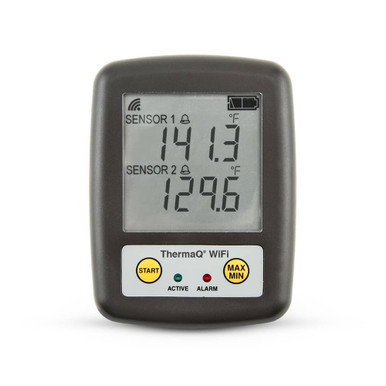Encore 2040 cat-c. Manufactured in 2023 if that adds any detail. The secondary air slot is just above the primary air flapper in the back of the stove. Single walled pipe for the flue into a decent length chimney (25+ feet). I am getting a key damper before next season as a cautionary step.
You’re correct, it can be burned in updraft mode for small fires or restarting. She doesn’t mind doing that, it’s the damper and air control part she’s not comfortable with yet. I can encourage her to do small updraft fires to warm up when she’s downstairs so thanks for that idea.
I’m getting good heat and haven’t over fired it. The manual says 18-20 inch wood and mine is 16 until I burn through what I have so I’m not sure if that has much effect. It’s the times when I’m 100% primary air closed with a decent fuel load left to go that I’d like more control. The cat climbed to 1525 after fulling cutting the air at around 1200 yesterday. Maybe I need to cut it back fully earlier. Maybe my perception of 3/4 load is off and that’s a full load. Still learning all the variables.
You’re correct, it can be burned in updraft mode for small fires or restarting. She doesn’t mind doing that, it’s the damper and air control part she’s not comfortable with yet. I can encourage her to do small updraft fires to warm up when she’s downstairs so thanks for that idea.
I’m getting good heat and haven’t over fired it. The manual says 18-20 inch wood and mine is 16 until I burn through what I have so I’m not sure if that has much effect. It’s the times when I’m 100% primary air closed with a decent fuel load left to go that I’d like more control. The cat climbed to 1525 after fulling cutting the air at around 1200 yesterday. Maybe I need to cut it back fully earlier. Maybe my perception of 3/4 load is off and that’s a full load. Still learning all the variables.


![[Hearth.com] 2023/24 VC Temperature discussion thread [Hearth.com] 2023/24 VC Temperature discussion thread](https://www.hearth.com/talk/data/attachments/325/325317-19070def548bcb6f65cc1b983528d101.jpg?hash=WHNd4vrx2T)

![[Hearth.com] 2023/24 VC Temperature discussion thread [Hearth.com] 2023/24 VC Temperature discussion thread](https://www.hearth.com/talk/data/attachments/325/325435-5e990135d7becfbbc18a78b17d86b72f.jpg?hash=pN0Etc38ci)